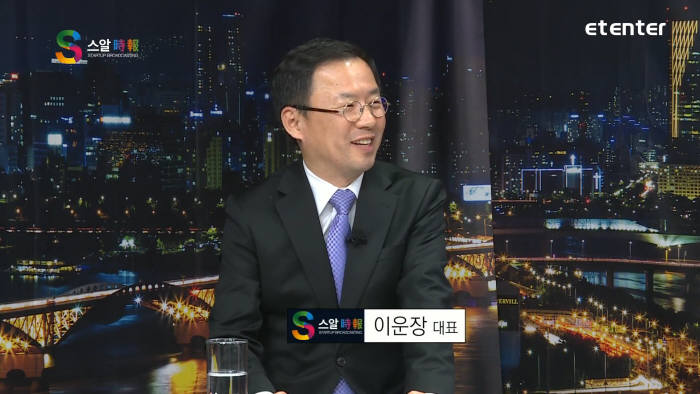북한은 국제사회에 일본이 후쿠시마 원자력 발전소의 처리된 폐수를 해양에 방류하는 것을 중단할 것을 촉구했다.
북한 국토환경보호성은 “정의로운 국제사회는 인류의 고향인 푸른 지구를 파괴하려는 부패한 세력의 사악하고 반인도적이며 호전적인 행동을 앉아서 지켜봐서는 안 되며 단결하여 이를 철저히 저지하고 파괴해야 한다”고 말했다.
국영 매체 KCNA가 일요일에 보도한 이 성명은 지난주 유엔의 국제 원자력기구 (IAEA)가 도쿄의 계획이 안전하고 환경 안전에 대한 국제 표준에 부합한다고 말한 이후에 나온 것이다.
일본은 올 여름 중으로 폐수를 방출할 계획이다.
북한의 성명은 환경과 공중 보건에 대한 잠재적 피해에 대한 우려를 불러일으킨 한국, 중국, 태평양 도서국 등 주변국들의 일련의 우려 표명 중 가장 최근의 것이다.
중국 세관 당국은 금요일 후쿠시마를 포함한 일본 10개 현의 식품 수입 금지 조치가 유지될 것이며 “중국으로 수입되는 일본 식품의 안전을 보장하기 위해 방사성 물질을 감시하기 위한 검사를 강화할 것“이라고 발표했다.
유엔의 승인은 2011년 재해로 여전히 피해를 입은 어민과 주민들을 안심시키는 데는 거의 도움이 되지 못했다.
라파엘 그로시 IAEA 사무총장은 최근 도쿄에서 CNN과의 인터뷰에서 일본 어민 단체와 지역 시장들을 만나 그들의 두려움을 인정했다고 말했다.
“저의 성향은 … 경청하고 그들이 가지고 있는 모든 우려를 해결할 수 있는 방식으로 설명하는 것이다”라고 그는 말했다. “후쿠시마를 방문하면 방사성 물질이 포함된 100만 톤이 넘는 물이 담긴 수조를 보고 이것이 바다로 방류될 것이라고 상상하는 것은 매우 인상적이며 불길하다는 표현까지 써야 할 것 같습니다, 따라서 모든 종류의 두려움이 시작되고, 이를 진지하게 받아들이고 해결하고 설명해야 합니다”라고 말하기도 했다.
국제원자력기구는 후쿠시마 원전 사고 이후 막대한 양의 폐수를 처리할 수 있는 더 좋은 방법이 없다고 말했다.
“우리는 2년 넘게 이 기본 정책을 검토해 왔습니다. 우리는 현존하는 가장 엄격한 기준에 따라 평가해 왔습니다.”라고 그로시는 말했다. “그리고 우리는 우리가 말하는 내용과 우리가 제안한 계획에 대해 상당히 확신합니다.”라고 덛붙여 말했다.
2011년 후쿠시마 원전 사고로 인해 원자로 노심이 과열되어 시설 내 물이 고농도 방사성 물질로 오염되었다.
그 이후로 원자로의 연료 잔해를 식히기 위해 새로운 물을 펌핑했다. 지하수와 빗물도 누출되어 현재 올림픽 규모의 수영장 500개 이상을 채울 수 있는 132만 미터톤에 달하는 방사성 폐수가 발생했다.
일본 당국은 오염 물질을 담을 공간이 부족하기 때문에 방출이 필요하다고 주장해 왔으며, 이러한 조치가 후쿠시마 원전의 완전한 해체를 가능하게 할 것이라고 주장했다.
국제 과학자들은 장기적인 안전성에 대한 증거가 충분하지 않으며, 방출로 인해 폐수에서 제거 할 수없는 방사성 수소 동위 원소 인 삼중수소가 생물 축적이라고하는 과정 인 해양 생태계와 먹이 사슬에 점차적으로 축적 될 수 있다고 주장하면서 CNN에 우려를 표명했다.
기사원문 : CNN (2023.07.09) <North Korea calls on international community to stop Japan’s release of treated Fukushima wastewater>
orth Korea calls on international community to stop Japan’s release of treated Fukushima wastewater
By Jake Kwon and Heather Chen, CNN
North Korea has called upon the international community to stop Japan from releasing treated wastewater from the Fukushima nuclear plant into the ocean.
“The just international community must not sit and watch the evil, anti-humanitarian and belligerent action by the corrupt force that is trying to disrupt humanity’s home of the blue planet – and must unite to thoroughly stop and destroy them,” the country’s Land and Environment Protection Department said.
Its statement, reported by state media outlet KCNA on Sunday, comes after the UN’s International Atomic Energy Agency (IAEA) said last week that Tokyo’s plan was safe and in line with international standards for environmental safety.
Japan plans to release the wastewater sometime this summer.
Pyongyang’s statement is the latest in a series of concerns voiced by neighboring countries like South Korea, China and the Pacific Islands – all of which have raised fears about potential harm to the environment and public health.
Chinese custom authorities on Friday announced that a ban on food imports from 10 Japanese prefectures including Fukushima would remain in place and that it would strengthen inspections to monitor for “radioactive substances, to ensure the safety of Japanese food imports to China.”
The UN’s approval has done little to reassure fishermen and residents still affected by the 2011 disaster.
Speaking to CNN in a recent interview in Tokyo, IAEA Director General Rafael Grossi said he had met with Japanese fishing groups and local mayors and acknowledged their fears.
“My disposition … is one of listening, and explaining in a way that addresses all these concerns they have,” he said. “When one visits Fukushima, it is quite impressive, I will even say ominous, to look at all these tanks, more than a million tons of water that contains radionuclides – imagining that this is going to be discharged into the ocean. So all sorts of fears kick in, and one has to take them seriously, to address and to explain.”
The IAEA has said that there was no better option to deal with the massive buildup of wastewater collected since the disaster.
“We have been looking at this basic policy for more than two years. We have been assessing it against … the most stringent standards that exist,” Grossi said. “And we are quite certain of what we are saying, and the scheme we have proposed.”
The 2011 disaster caused the plant’s reactor cores to overheat and contaminate water within the facility with highly radioactive material.
Since then, new water has been pumped in to cool fuel debris in the reactors. Ground and rainwater have also leaked in, creating more radioactive wastewater now measuring 1.32 million metric tons – enough to fill more than 500 Olympic-sized swimming pools.
‘Necessary move’
Japanese authorities have maintained that the release is necessary as space runs out to contain the contaminated material – and the move would allow the full decommissioning of the Fukushima nuclear plant.
International scientists have expressed concern to CNN, saying that there is insufficient evidence of long-term safety and arguing that the release could cause tritium – a radioactive hydrogen isotope that cannot be removed from the wastewater – to gradually build up in marine ecosystems and food chains, a process called bioaccumulation.
![]()





